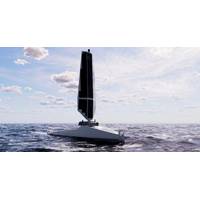
James Fisher Backs US Autonomous Vessel Firm Ocean Aero
without onboard crews.Ocean Aero designs, manufactures and operates the Triton, an autonomous vehicle capable of operating both above and below the sea surface to collect and transmit data remotely. The platform is used for marine monitoring and subsea data collection across offshore energy and defense applications.James Fisher said the investment aligns with its dual-use strategy across energy and defense, expanding its access to next-generation autonomous systems and strengthening its position in marine monitoring and subsea intervention markets.“The Ocean Aero team and technology are both incredibly
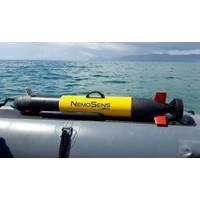
The French Hydrographic & Oceanographic Service Orders New Maritime Drone
underwater micro-drone (μAUV), the NemoSens model, manufactured by RTsys. This order is part of a plan for hydrographic and oceanographic data acquisition methods launched by Shom in 2024.NemoSens is a micro autonomous underwater vehicle (μAUV) designed for scientific, industrial, and defense applications. It is compact at less than one meter and lightweight at less than 10 kg. Its various payload configurations allow for flexibility and maximum usability. NemoSens incorporates the latest hardware and software updates from the RTsys product line, making the micro AUV the most powerful

Entanglement Acquires Applied Ocean Sciences
, strengthening the firm’s portfolio of applied intelligence platforms across environmental, maritime, and dual-use domains.Applied Ocean Sciences’ work spans environmental science and conservation, atmospheric science, physical oceanography, biological oceanography, and maritime and defense applications. These capabilities support complex sensing, modeling, and decision-making challenges across ocean, atmosphere, and increasingly space-enabled Earth observation systems.AOS has a long history of work with government agencies and research institutions, including the World Wildlife Fund, U.S
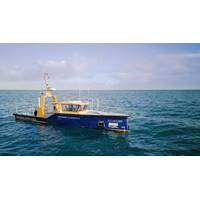
Down Under
and gas client which wants to use it in high flow waters off the coast of Taranaki. Its next custom ROV after that is a research ROV for the University of Waikato which will use it all over New Zealand and take it annually to Antarctica for under ice research.“We have also been involved with defense applications in terms of USVs, and we are actively working on an open ocean monitoring and defense system that can live at sea, dynamically shift locations and submerge itself for severe weather events,” says Mooney. “This creates a dynamically shifting detection system across huge areas of
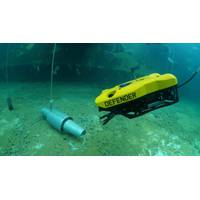
VideoRay Relies on Nortek DVLs for High-Stakes Missions
VideoRay’s Mission Specialist Defender ROV, used in defense applications including explosive ordnance disposal (EOD), relies on Nortek’s DVL 500 Compact for navigation and vehicle control during sensitive missions.Pennsylvania-based VideoRay, an AV company, is a manufacturer of underwater robotic systems. Their Defender ROV has been selected by the U.S. Navy to support the Navy’s Explosive Ordnance Disposal Underwater Vehicle Program and the MESR (US Navy’s Maritime Expeditionary Standoff Response) program of record. For this application, the Defender relies on Nortek’s
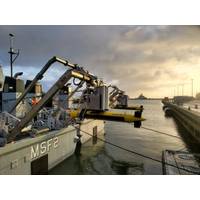
Deeply Innovative: Drivers in Subsea Defense
backbone.Integration & Collaboration: The Ecosystem Behind the InnovationThe rapid pace of maritime defense innovation is fueled not only by trends in cutting-edge technologies, but also by collaborative ecosystems that accelerate the transition of commercial ocean technology into defense applications. These hubs, holding companies, and strategic alliances are helping to bridge the gap between commercial innovation and operational capability.Technology clusters like Nova Scotia-based COVE (Centre for Ocean Ventures and Entrepreneurship) provide a collaborative space for startups, researchers
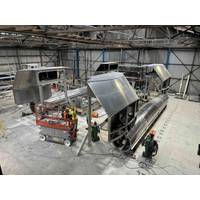
ACUA Ocean Announces Build of Second Pioneer-Class USV
to a 20ft equivalent unit ISO container footprintUp to 6 tons payload massUpwards of 50kW power draw dependent on USV and payload configurationThis supports the operation of a variety of payloads, including towed bodies for seabed mapping; geophysical site and subsea pipe/cable inspections; and defense applications such as (mine countermeasures, rapid environmental assessment, Intelligence surveillance and reconnaissance).The Pioneer-classes modular payload configuration is designed such that several USVs and their modular payloads can be operated offshore in concurrency from a Remote Operations Centre
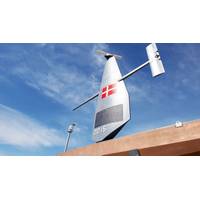
Saildrone Closes $60M Financing to Bring Maritime Autonomy to Europe
, a leader in maritime autonomy, announced the closing of a $60 million investment round led by EIFO, the Export and Investment Fund of Denmark. The investment will be used to bring Saildrone technology to Europe to address the urgent need for maritime security for critical infrastructure and wider defense applications.The Baltic, North Sea, and European Arctic waters are currently facing unprecedented threats, and the need for persistent maritime domain awareness is significant. Saildrone’s extreme endurance unmanned surface vehicles utilize sophisticated sensors, combined with proprietary AI algorithms
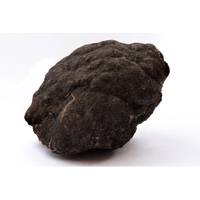
White House Could Bypass UN on Deep-Sea Mining
in the hands of a global body that oversees access and resolves disputes.Part of Trump's hunt for fresh sources of critical minerals has to do with efforts to reduce China's broad control over their production and processing, with Beijing beginning to block exports of key minerals used in defense applications.It was not immediately clear what kind of staffing NOAA would require to review deep-sea mining permits. Like many U.S. federal government agencies, NOAA has seen job cuts as part of Trump's efficiency push with Elon Musk.Deep-sea mining is also more technically complex than mining on
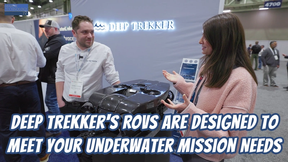
 December 2025
December 2025





